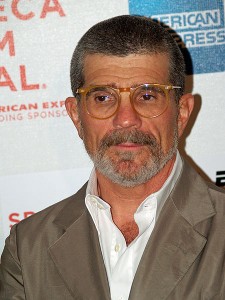In 2009, Will Hubbard and Alex Carnevale of This Recording compiled a list called “The 100 Greatest Writers of All Time.” I’m not saying I agree with everything one-hundred percent, but it’s probably the best literary list I’ve ever come across. From number one hundred to the top spot, the duo rank the best writers in the history of the world, including poets, playwrights, essayists, short story writers and novelists. There are, of course, the household names (Congratulations, William Shakespeare!), but there are a lot of provocative inclusions as well. You owe it to yourself to read the whole thing, but here are a few examples of the entries:
88. David Mamet
The quintessentially Jewish-American dramatist, his conquests of poetry and fiction were minor. But he exploded the idea of the American play, creating an exciting new vernacular that brought crowds, excitement and controversy to the stage. Famous for shutting down an all-female production of his masterpiece Glengarry Glen Ross, Mamet is an able theoretician, and maybe the most important Chicago Jew of all time. Recommended reading: American Buffalo, The Duck Variations, Boston Marriage.
49. Charles Olson
America’s Bard, the voice of New England. Incredibly tall, incredibly wacked. He is the father of much of the American verse that directly followed, but he would never know just how lasting his work would be. He is our poet of the future, a deep thinker who lacked empathy for everyone but himself. Self-involvement can became a kind of genius at this depth, or so we hope. Recommended reading: “The Post Office”, The Maximus Poems, “The K”.
20. Laurence Sterne
The finest experimentalist ever. Smash novels, insights of incomparable erudition, hilarious, so ahead of their time that they seem more modern than most things published today. Tristram Shandy has lasted longer than its detractors. Many of its jokes have still yet to be parsed from a text thick with meaning, with comedy and profound statements of humanity in a time where it was not so easy to recognize what exactly that meant. Recommended reading: A Sentimental Journey, Tristram Shandy.

